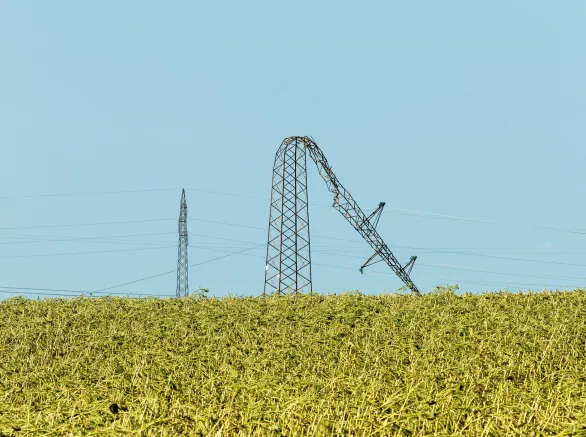March 29, 2023
Exponent experts assess damage in partnership with the Earthquake Engineering Research Institute
One of the deadliest earthquakes in decades, the 7.8-magnitude Feb. 6 earthquake that struck southern Türkiye and northern Syria flattened vast swaths of cities, killed over 50,000 residents, and has left millions homeless in a region already marked by an overlapping civil war and the world's largest refugee crisis. Collectively, the massive quake, the magnitude 7.5 seismic event some nine hours later, and the wave of more than 200 aftershocks are known jointly as the Kahramanmaraş Earthquake Sequence.
In March, three Exponent engineers traveled to Türkiye, joining a reconnaissance team sent by the Earthquake Engineering Research Institute (EERI), a leading technical society that accelerates the science of earthquake engineering and learning from earthquake-induced disasters. Going on 75 years now, the California-based nonprofit mobilizes global teams of multidisciplinary experts to visit devastated areas to make rapid and precise observations, a post-disaster response process critical to managing short-term emergency response and improving the long-term understanding of natural hazards.
"As engineers, these post-earthquake reconnaissance efforts allow us to better understand seismic risks and record valuable information that will inform design professionals, city planners, and emergency responders," said Ezra Jampole, Ph.D., P.E., an Exponent senior managing engineer who performs structural engineering failure analysis and develops risk models to mitigate the effects of natural disasters. "These lessons inform the development of codes and standards with the goal of more robust infrastructure and more resilient communities, thereby reducing future suffering. As engineers and scientists, this field research is our responsibility."

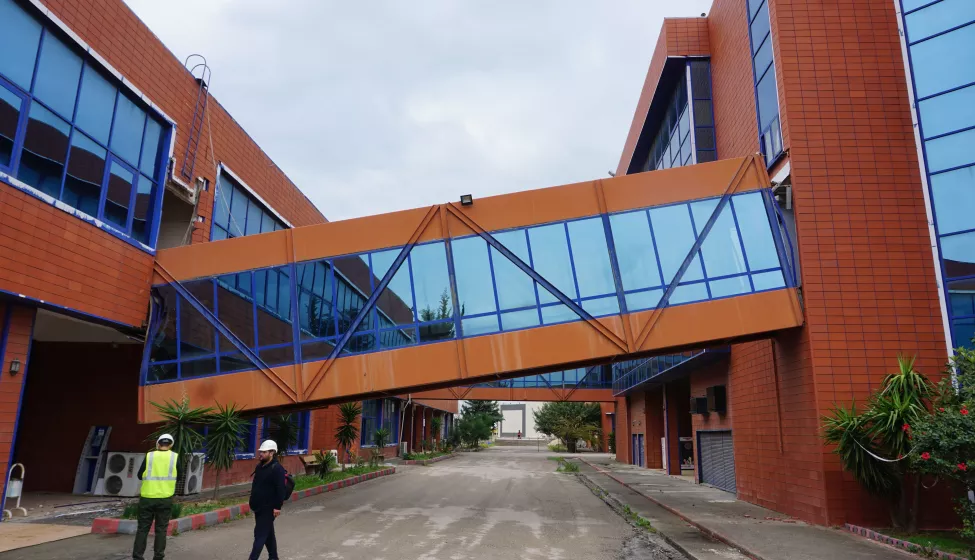
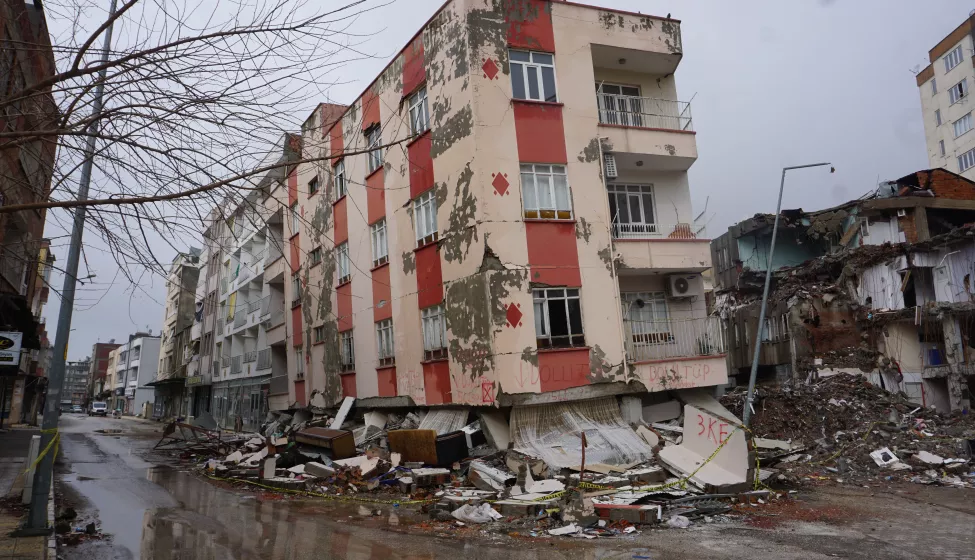
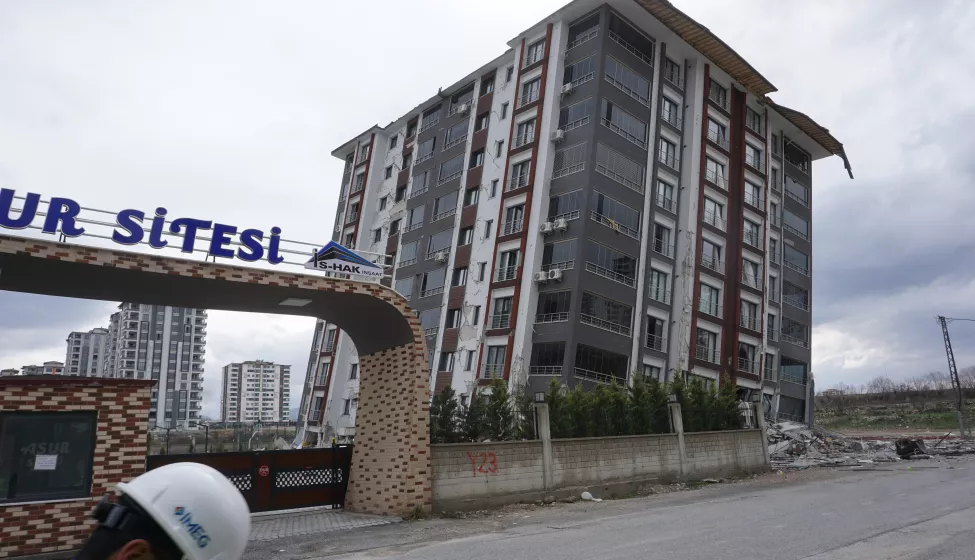
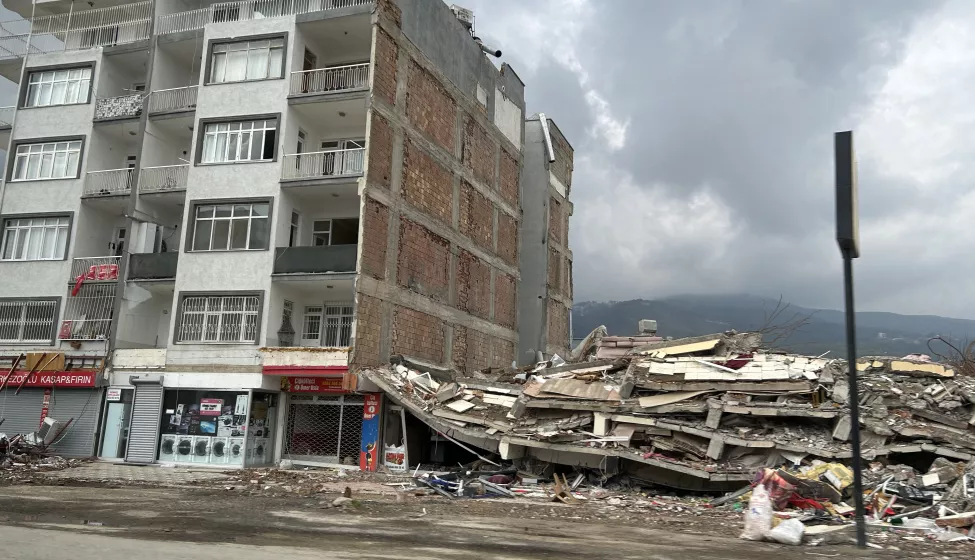
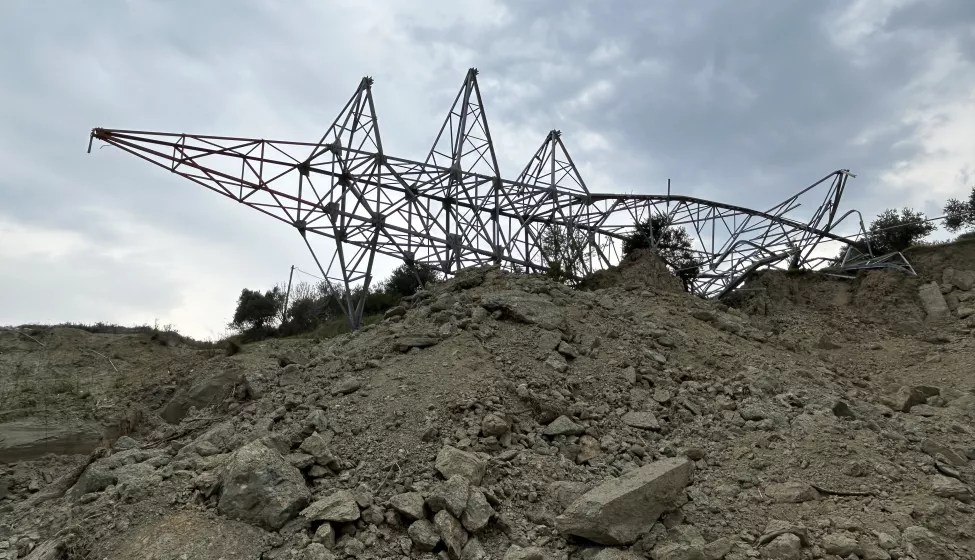

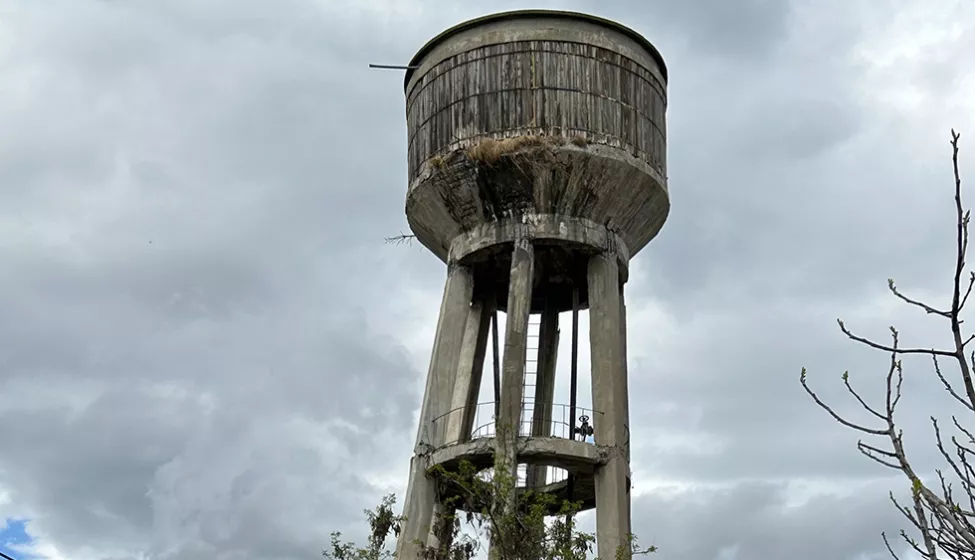
The EERI reconnaissance teams will present their findings in webinars and reports and during a special live session on April 11 at EERI's 2023 Annual Meeting in San Francisco. Working from sunup to sundown across Southern Türkiye, the team scoured residential and commercial buildings, schools, government offices, historic and religious structures, as well as power plants, transmission lines, airports, dams, bridges, and tunnels.
Exponent has been investigating earthquake damage for more than 50 years. Exponent seismic experts were fortunate to join the EERI mission in early March, making key contributions to the Lifelines team, assessing damage to power, water, and transportation infrastructure, as well as the Buildings Reconnaissance Team.
Buildings Reconnaissance Team — Morgan Griffith, P.E., Exponent principal engineer, evaluated the performance of buildings constructed before and after the 1998 earthquake structural code enacted in Türkiye. Mr. Griffith specializes in earthquake engineering, soil-structure interaction, and performing damage assessments and design analyses of structures impacted by seismic, wind, flood, and snow loads. The team aimed to understand how structural attributes and geotechnical conditions either limited earthquake damage or made sites more vulnerable to damage and collapse.
Lifelines Reconnaissance Team — Jeffrey Hunt, Ph.D., P.E., Exponent senior managing engineer, and Dr. Jampole studied both damaged and undamaged lifeline systems, including bridges, viaducts, tunnels, roads, airports, wastewater treatment plants, industrial facilities, and electrical transmission and distribution structures, to determine structural and geotechnical characteristics that made them more or less vulnerable to intense shaking. Dr. Hunt specializes in damage assessments and failure investigations of residential, commercial, and industrial structures due to earthquake, wind, fire, snow, blast loading, and earth movement.




